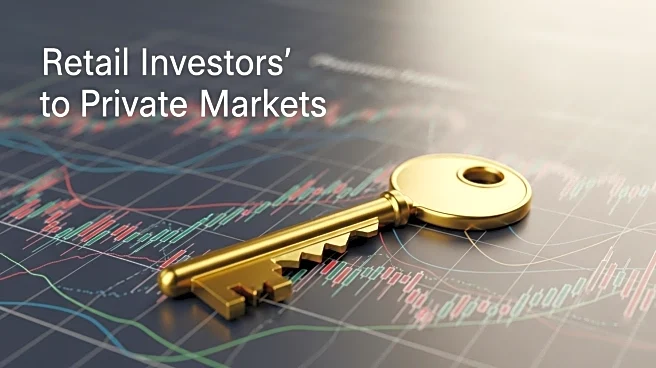What's Happening?
Retail investors in Europe are gaining increased access to private markets through new investment vehicles, such as the partnership between Hargreaves Lansdown and Schroders Capital. This initiative allows British investors to access globally-diversified Long-Term Asset Funds, focusing on small- to mid-sized companies and energy infrastructure. While this development is seen as a milestone for accessibility, it also raises concerns about the risks associated with private market investments, including liquidity issues and lack of transparency compared to public markets.
Why It's Important?
The expansion of retail investors' access to private markets could significantly impact the investment landscape, offering unique growth opportunities beyond public markets. However, the high risk and limited liquidity of private assets pose challenges, potentially affecting investors' ability to access their capital during market turbulence. This shift may influence economic activity, with private equity supporting business expansion and contributing to the economy. The move reflects a broader trend towards democratizing access to private assets, which could reshape investment strategies.
Beyond the Headlines
The push for retail involvement in private markets highlights ethical and regulatory considerations, such as ensuring investors are adequately informed about the risks involved. The complexity and fee structures of private market investments necessitate careful evaluation and independent analysis. As the market evolves, stakeholders must address these challenges to protect investors and maintain market stability.









